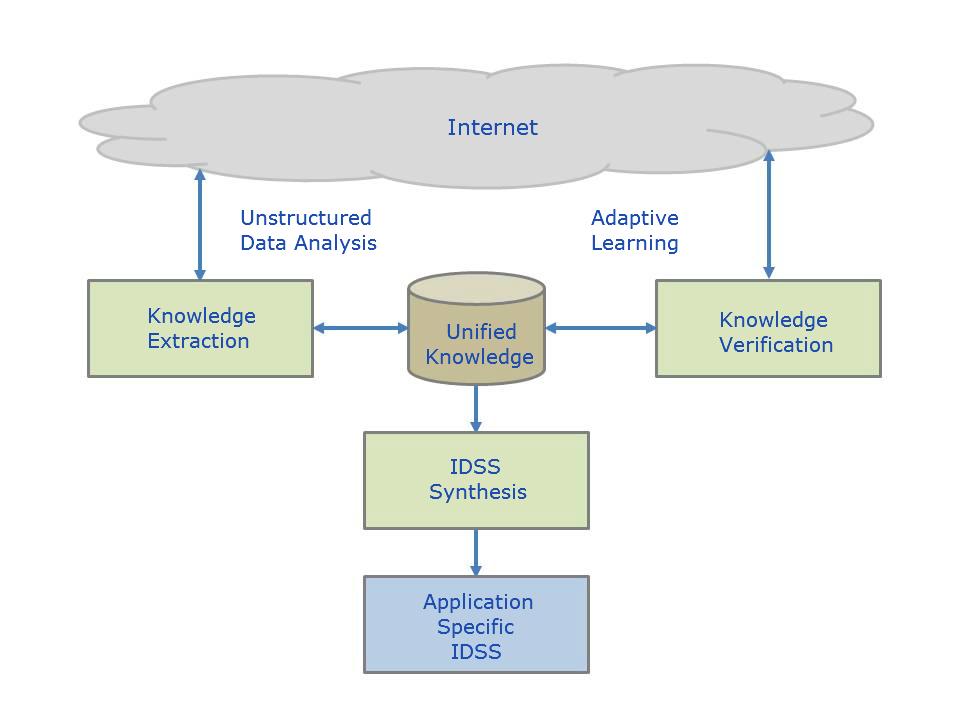 Cyceera’s Knowledge Processing Framework (KPF) is derived from our patented research in highly parallel manycore computing architectures and “big data” analytics. We employ a recursive process in which acquired knowledge is used to enhance the performance of the KPF. Our systems are self learning and adaptive. The KPF is used to synthesize an Intelligent Autonomous System for a particular application(s).
Cyceera’s Knowledge Processing Framework (KPF) is derived from our patented research in highly parallel manycore computing architectures and “big data” analytics. We employ a recursive process in which acquired knowledge is used to enhance the performance of the KPF. Our systems are self learning and adaptive. The KPF is used to synthesize an Intelligent Autonomous System for a particular application(s).
Cyceera’s Knowledge Processing Framework (KPF) integrates algorithms from a range of related disciplines, such as computation, cognition, data analytics, knowledge extraction, mathematics and Natural Language Processing (NLP). The Knowledge Processing Framework operates in a different way. The system “understands” multi-criteria data, is situationally aware and is therefore objective. Multi dimensional data is processed in a novel way; formatted into a unified modular knowledge unit with a standardised interface allowing it to be combined in various ways for various uses.
The resulting Intelligent Decision Support Systems (IDSS) learn, reason and engage with users in a more natural and personalized way e.g. gesture recognition. Through adaptive learning and knowledge verification IDSSs become smarter and more customized through interactions with the environment, devices and people.
Generic and scalable, the Knowledge Processing Framework is designed for growth, change and can be deployed on different platforms for use by different stake holders. It can substantially improve decision making, minimize risks, and unearth valuable insights that would otherwise remain hidden. It will enable all kinds of enterprises to create new products and services, enhance existing ones, and invent entirely new business models. Consequently, there is the potential for making faster advances in many disciplines and improving the profitability and success of many enterprises.
As shown below, the KPF consists of three modules or processes:
Knowledge extraction, Knowledge verification and IDSS synthesis
Key features of the KPF are:-
- Generic, Modular and Scalable
- Unifies unstructured data into modular knowledge units
- Automatic synthesis of IDSS for a particular application
- Autonomous learning and knowledge verification
- Situationally aware, an IDSS adapts to changing situations

